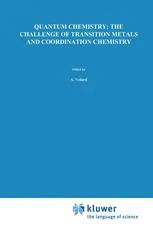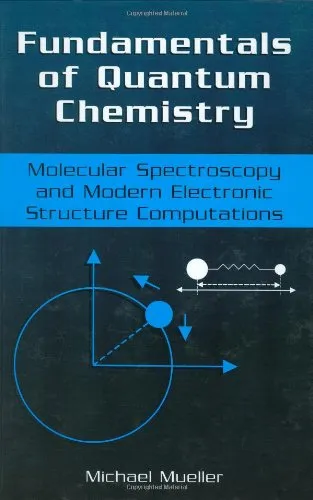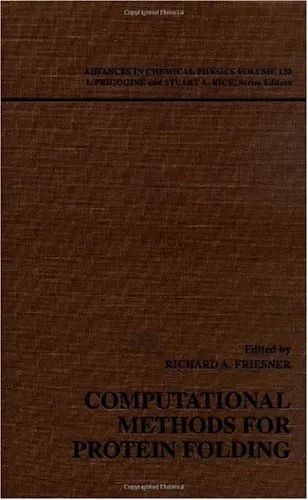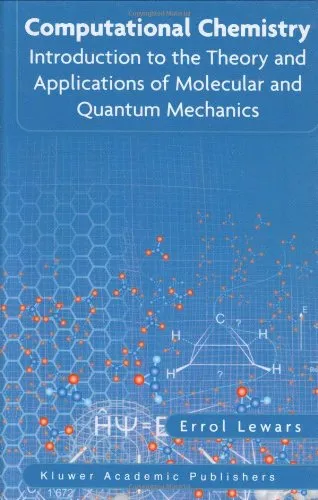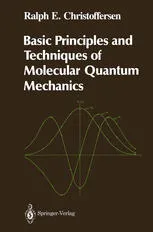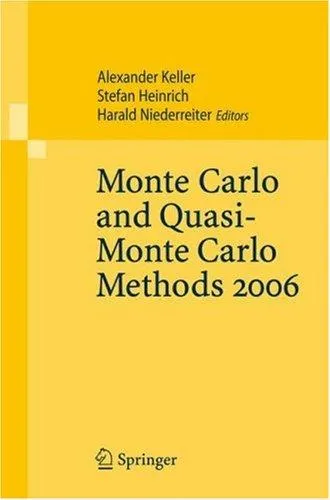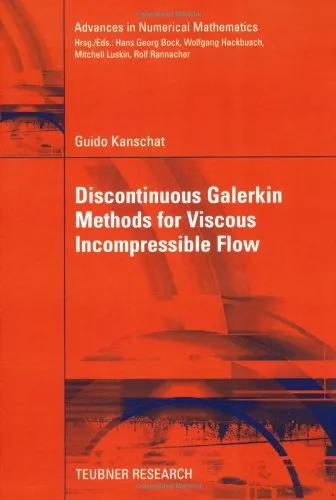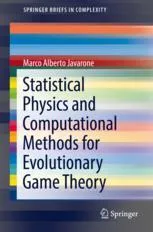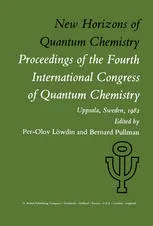Quantum Chemistry: The Challenge of Transition Metals and Coordination Chemistry
4.4
Reviews from our users

You Can Ask your questions from this book's AI after Login
Each download or ask from book AI costs 2 points. To earn more free points, please visit the Points Guide Page and complete some valuable actions.کتاب های مرتبط:
Introduction to "Quantum Chemistry: The Challenge of Transition Metals and Coordination Chemistry"
The world of chemistry finds one of its most intricate and fascinating domains in quantum chemistry, particularly when applied to the study of transition metals and coordination complexes. "Quantum Chemistry: The Challenge of Transition Metals and Coordination Chemistry" is a profound exploration of these advanced topics, authored by M. Blomberg, U. Brandemark, and I. Panas, and edited expertly by A. Veillard. This book stands at the confluence of deep theoretical insights and cutting-edge practical applications, aiming to bridge the gap between quantum theory and experimental results pertaining to transition metal systems.
The book delves into the core complexities of transition metals and their role in coordination chemistry, areas where classical quantum chemical methods often reach their limits. Utilizing advanced computational approaches and theoretical models, the authors navigate the multifaceted challenges posed by these systems. It serves as both a high-level academic resource and a guide for advanced students and researchers aiming to deepen their understanding of quantum chemistry as it relates to transition metal systems.
Summary of the Book
This book provides a comprehensive introduction to the quantum chemistry of transition metals, focusing on their intricate electronic structures, diverse oxidation states, and complex bonding behaviors. The authors begin by reviewing the fundamental principles of quantum chemistry, including the Schrödinger equation, electronic structures, and molecular orbitals. They then transition (no pun intended!) into an in-depth examination of how these theories apply to transition metal atoms, ions, and their coordination complexes.
Key focus areas in the book include multi-reference theories, density functional theory, and ligand field theory as they pertain to transition metals. The authors emphasize the challenges inherent in modeling d-electron and f-electron configurations accurately. Complex phenomena such as spin crossing, Jahn-Teller effects, and metal-to-ligand charge transfer are discussed in detail, providing invaluable insights into the chemistry of these substances. The last sections pivot toward applications, such as catalysis and materials science, highlighting the practical relevance of mastering these aspects of quantum chemistry.
Beyond technique and theory, the book is notable for its pragmatic approach to computational chemistry, filled with case studies and illustrations of real-world problems tackled using quantum mechanical models. These examples emphasize the importance of interdisciplinary knowledge, blending quantum chemistry principles with experimental findings in inorganic and materials chemistry.
Key Takeaways
- Insight into the unique challenges that transition metal systems pose for quantum chemical modeling and simulation.
- A detailed analysis of theoretical tools specifically designed for studying d- and f-block elements.
- Understanding the role of transition metals in catalysis, biomimetic systems, and advanced materials.
- Exploration of ligand field theory and its relevance in explaining the electronic properties of coordination complexes.
- Guidance on applying density functional theory and other approaches for modeling these complex systems.
Famous Quotes from the Book
The authors provide numerous thought-provoking statements and analyses that underline the importance of this area of quantum chemistry. Here are a few of the most memorable:
“Transition metals remain at the heart of science and engineering, not because they are easy to understand, but precisely because their complexity drives innovation.”
“Quantum chemistry finds its true test in transition metal systems, where intuition fails, and computation becomes indispensable.”
Why This Book Matters
Transition metals and coordination complexes are pivotal to numerous scientific disciplines, including catalysis, materials science, and biomolecular engineering. Understanding their behavior is key to unlocking advances in technologies ranging from renewable energy to pharmacology. Despite their importance, traditional quantum chemical methodologies often struggle to accommodate the peculiarities of transition metal systems. This book addresses that gap, offering cutting-edge solutions and theoretical insights that empower researchers to investigate these fascinating systems with greater accuracy and understanding.
Furthermore, the book underscores the importance of computational tools in modern chemistry, showcasing their potential to predict properties, guide experiments, and solve longstanding scientific puzzles. By doing so, it inspires a new generation of chemists to embrace interdisciplinary approaches to solve the challenges of tomorrow.
Whether you are a seasoned researcher, an advanced student, or simply a curious mind intrigued by the intersection of quantum theory and chemistry, "Quantum Chemistry: The Challenge of Transition Metals and Coordination Chemistry" provides a rigorous and intellectually stimulating journey into one of the most captivating areas of scientific inquiry.
Free Direct Download
You Can Download this book after Login
Accessing books through legal platforms and public libraries not only supports the rights of authors and publishers but also contributes to the sustainability of reading culture. Before downloading, please take a moment to consider these options.
Find this book on other platforms:
WorldCat helps you find books in libraries worldwide.
See ratings, reviews, and discussions on Goodreads.
Find and buy rare or used books on AbeBooks.
1456
بازدید4.4
امتیاز0
نظر98%
رضایتReviews:
4.4
Based on 0 users review
Questions & Answers
Ask questions about this book or help others by answering
No questions yet. Be the first to ask!
